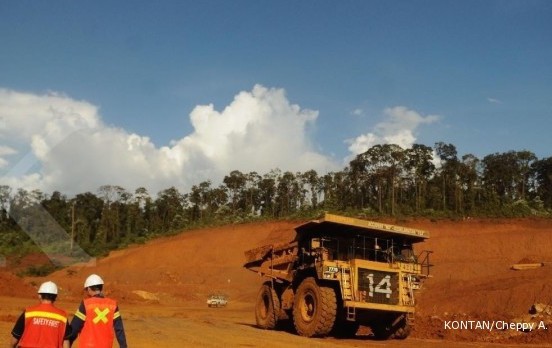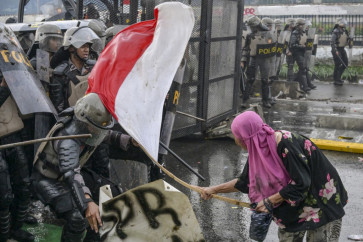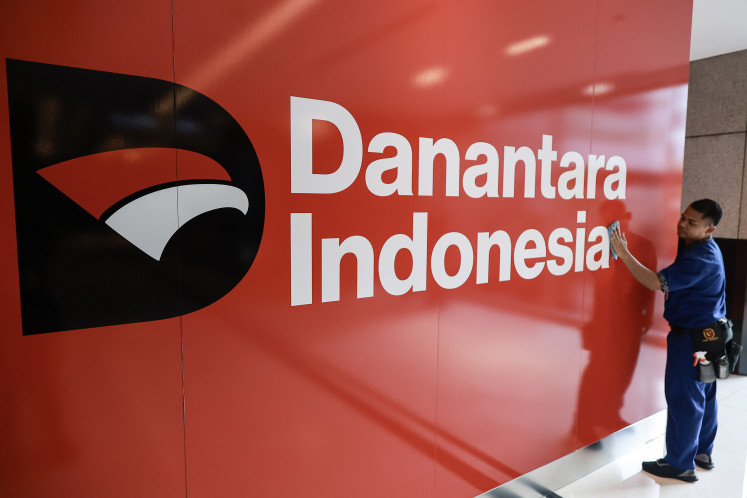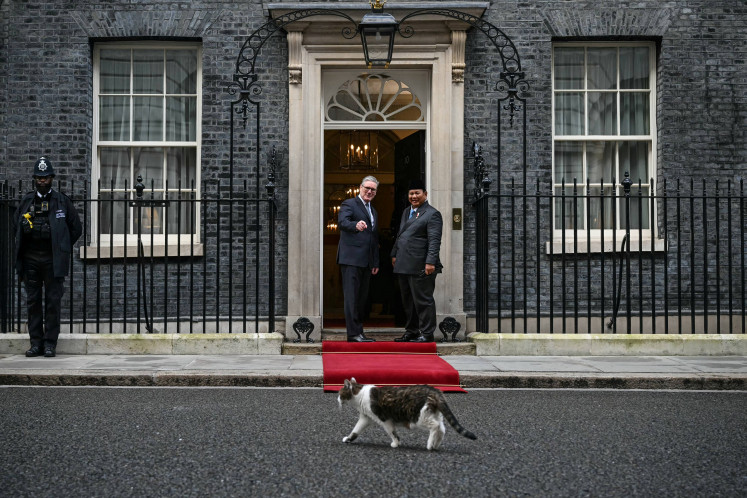Popular Reads
Top Results
Can't find what you're looking for?
View all search resultsPopular Reads
Top Results
Can't find what you're looking for?
View all search resultsFlip-flopping nickel policy
As Indonesia supplies more than 20 percent of the global nickel market, the country will certainly benefit greatly from the compulsory domestic refining of raw nickel. But policy flip-flopping does not bode well for the credibility of government policy.
Change text size
Gift Premium Articles
to Anyone
T
he objective of the Mining Law, enacted in the 2009 election year, is noble as it is designed to increase the value of minerals through processing. But the way the law has been enforced with such lack of clarity and certainty only damages the credibility and reliability of the government’s policy-making capacity.
The government, apparently disappointed with slow progress in the construction of many nickel smelters, revealed early this week a plan to entirely stop exports of raw nickel (ore) as of January 2020 — two years before originally scheduled.
The export ban also seems necessary to ensure that nickel reserves remain adequate to supply smelters that are already operating and those still under construction, because raw nickel exports reached 38 million tons in the first half of this year alone, while proven reserves are currently estimated at only 698 million tons. According to the Energy and Mineral Resources Ministry, as of this year, 11 smelters are already in production and 25 are still under construction. These plants will need 80 million tons of nickel ore a year.
The 2009 Mining Law actually requires a total export ban on nickel ore and all other raw minerals, including copper and bauxite, by January 2014. But the law virtually remained on the shelf for almost three years due to the delayed issuance of implementation regulations by related line ministries. This led mining companies to believe that the government was not serious about the export ban policy.
But the government was forced to reschedule the smelting policy in early 2014, and raw nickel exports were allowed again as a total export ban, as required by the law, would have had an adverse impact on state revenues and export earnings and might have caused massive worker layoffs.
Then in early 2017, the policy was tightened with tough requirements to force nickel miners to build smelters, but the total export ban was rescheduled to January 2022. Mining firms were given export quotas according to the progress of their smelter projects.
The planned acceleration of the export ban was certainly met with negative responses from companies that are still building their smelters, as they will no longer gain revenues from raw nickel exports. But mining firms that have completed their smelters greatly welcome the policy change as they are assured of adequate nickel-ore feedstocks for decades ahead.
Nevertheless, such intermittent policy changes are especially damaging to investment in the mineral refining industry, which requires big investment, not only for the smelter alone but for high-capacity power generation. The huge electricity need is even more challenging because nickel smelter projects are located in Kalimantan and Sulawesi, which are still acutely short of basic infrastructure, notably power.
As Indonesia supplies more than 20 percent of the global nickel market, the country will certainly benefit greatly from the compulsory domestic refining of raw nickel, especially given the increasingly crucial role of nickel as a main basic material for car batteries. But policy flip-flopping does not bode well for the credibility of government policy.









